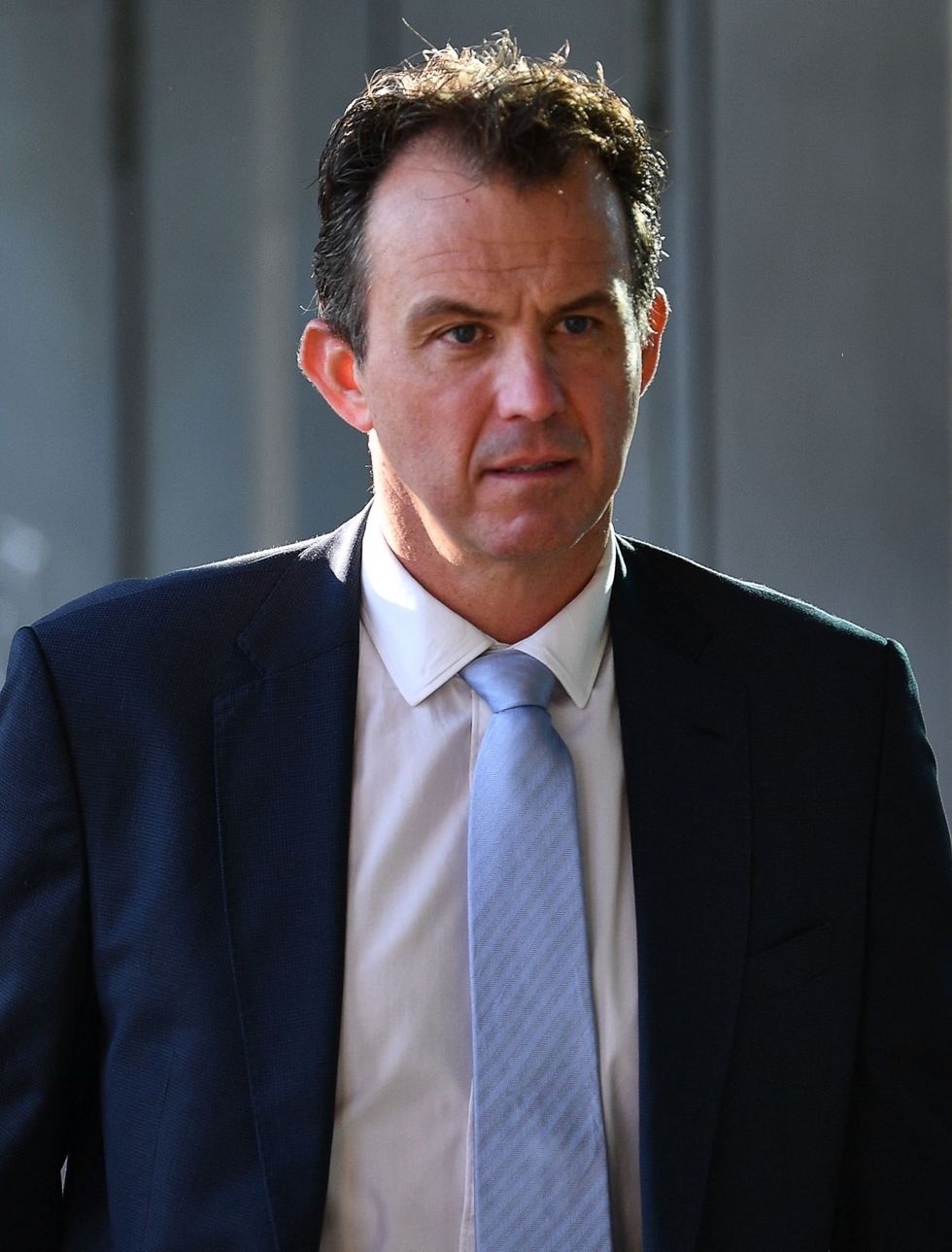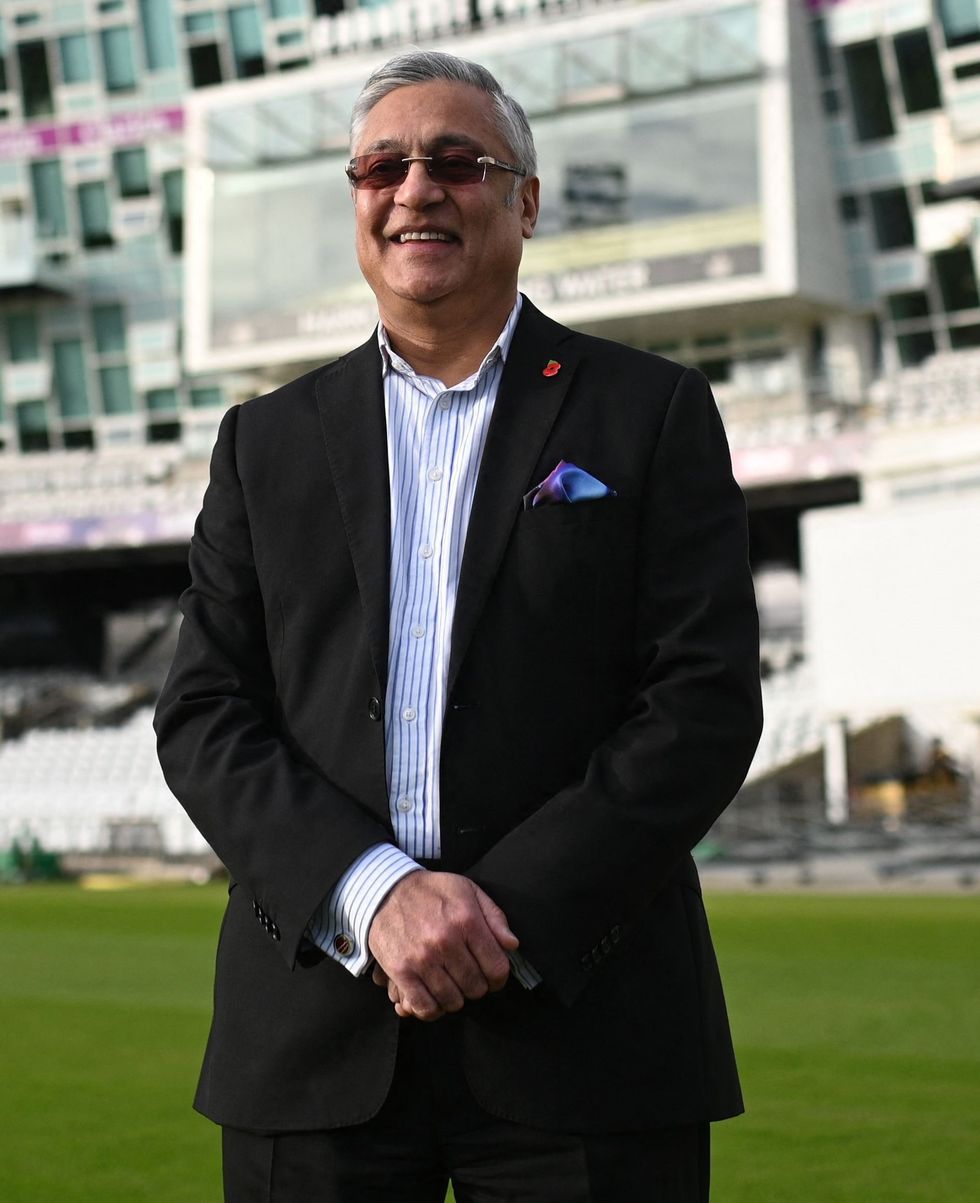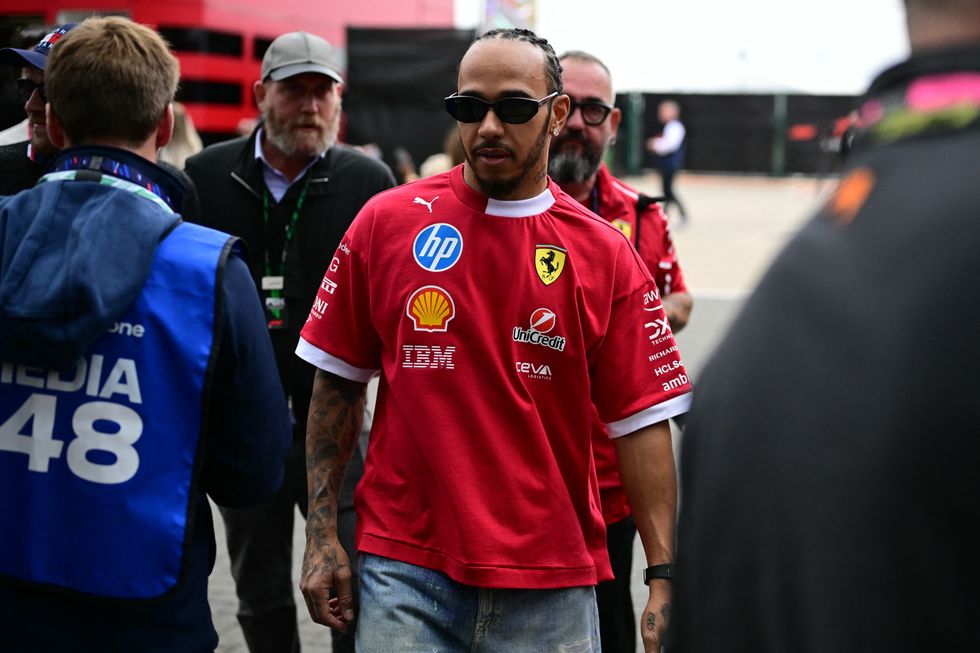ENGLISH cricket has been through its “annus horribilis” partly due to the poor performance of Joe Root’s Test team, but mainly because of the revelations about the racism suffered by Azeem Rafiq at Yorkshire, it has been stated in Wisden Cricketers’ Almanack 2022.
The expression was famously used by the Queen in 1992 to describe a year when several members of the royal family were caught up in personal scandals and a devastating fire which destroyed 115 rooms at Windsor Castle. Similarly, English cricket has been horribly burnt by the Rafiq racism scandal.
This is the 159th edition of Wisden, which many cricket lovers love to collect as the sport’s long acknowledged bible. Wisden’s editor, Lawrence Booth, hasn’t dodged any of the ugly details, which will now be in the reference book for all time to come.
Rafiq, now 31, was born in Karachi in Pakistan in 1991, moved to England in 2001, and played for Yorkshire between 2008 and 2014 and 2016 and 2018. In all, he played 35 first-class and 125 whiteball matches for the county.
For a start, Booth has written an editor’s note, in which he said “a racism scandal brought to light by the courage of Azeem Rafiq made the game look unwelcoming, and worse”.
Then Rafiq himself has described why he once contemplated suicide because of the indignities heaped on him at Yorkshire.
Wisden also carries a hard-hitting comment piece titled “Azeem Rafiq vs Yorkshire: Arms folded, eyes shut”, by David Hopps, a Yorkshire-based freelance cricket writer.

Booth criticised “English cricket’s tone-deaf handling of the racism crisis”. He also called on Tom Harrison, chief executive of the ECB (England and Wales Cricket Board), to “return his share of the £2.1 million bonus after an annus horribilis, on and off the field, for the English game”.
Booth recalled the occasion when Rafiq broke down in tears when giving evidence to a Commons committee: “Shocked by what they had learned about racism in cricket, the parliamentary Digital, Culture, Media and Sport select committee threatened to withhold public funds unless the English game ‘cleaned up its act’ and ordered Harrison to appear before them every three months.”
Booth added: “On the second morning of the summer’s first Test, against New Zealand at Lord’s in June, Ollie Robinson returned to fine leg, earning applause from spectators in the Mound Stand: less than rapturous, more than polite, it sounded like a show of support. The previous evening, he had read out an apology after old tweets surfaced in which he insulted Muslims, women and Asians. And a few hours before that, he and other England players had lined up on the outfield wearing anti-discrimination T-shirts. For the ECB, scrambling to be on the right side of history, the timing was horrific.
“His apology and suspension ought to have been the end of it. But others saw their chance to co-opt cricket into their own battles. They called the suspension a ban – a cancellation by the woke mob. Culture secretary Oliver Dowden said the ECB had gone over the top; prime minister Boris Johnson agreed. The Establishment were rumbling into action. It showed why English cricket’s race relations would deteriorate before they could improve.”
Booth continued: “As Yorkshire’s mishandling of the Rafiq affair went from bad to abysmal, the scale of the crisis became clear not through solecisms from the past, but clumsy attempts to navigate the present. Gary Ballance, a former friend and county team-mate, apologised for calling Rafiq a ‘Paki’, then suggested he might feel just as bad ‘about some of the things he said to me’. Ryan Sidebottom – hired as an interim coach at Headingley – said the club should ‘try and forget’, and never mind ‘all the politics’. The problem was not confined to Yorkshire.
Middlesex chairman Mike O’Farrell told the DCMS committee in January that diversification of the dressing-room had been hampered by an AngloCaribbean love of football, and Anglo-Asian preference for education. Both Sidebottom and O’Farrell said sorry. There were a lot of apologies in 2021; a few were heartfelt.
“The effect of all these comments was insidious, and the message to those on the game’s margins unambiguous: cricket’s mainstream remained tonedeaf, even after Black Lives Matter, Michael Holding, Ebony Rainford-Brent, Rafiq and countless others who had been emboldened to speak out. And if they weren’t paying attention on a subject as important as this, what else had they missed? With Mehmooda Duke, until November the only non-white county chair, leaving Leicestershire, and Vikram Solanki, the only non-white head coach, leaving Surrey, the need for diversity – a collection of different perspectives, not the tokenism some imagine – has never felt more urgent.”
Booth dealt with the initial reaction from Rafiq’s county: “Yorkshire – under pressure to release the findings of a law firm’s investigation into Rafiq’s claims – showed the world how not to do it. On the day the media were swamped by the cancellation of the Old Trafford Test, Headingley smuggled out a press release. It offered both an olive twig (‘Azeem Rafiq was the victim of racial harassment’) and a slap in the face (his sacking was not for ‘anything other than cricketing reasons’). It admitted to instances of racist language and jokes about religion, but said there was not enough evidence to say Yorkshire were institutionally racist. It was a game of semantics, the work of a club passing judgment on themselves.
“In October, Yorkshire were still trying to brazen it out, and issued another press release in which the seventh word was ‘pleased’. No one, it said, warranted disciplinary action; the issues raised by Rafiq had become part of the club’s ‘continuing journey’. Despite all this, chief executive Mark Arthur soon resigned, after ‘eight fantastic years’.
“Five days later, Rafiq spoke from the heart in front of the DCMS committee. Poignantly, he said he didn’t want his son ‘to go anywhere near cricket’. Roger Hutton, having stepped down as chairman 11 days earlier, said he feared Yorkshire were indeed institutionally racist. More accusations followed, at other counties too. The situation was made messier by the alleged involvement of Michael Vaughan, who denied making a racist remark before a county game in 2009, even as Naved-ul-Hasan and Adil Rashid supported Rafiq’s claim that he had. (Ajmal Shahzad said he could not remember.)
“Rafiq experienced the fate of many a whistle-blower: canonised by friends, then castigated by foes. Stories emerged of his own tainted past, to the delight of those who believed they invalidated his testimony. If anything, the mudslinging helped prove a more profound point: this wasn’t about one man – it was about a sport’s response to a social problem. And while cricket couldn’t solve racism, it could at least get its own house in order.

“Thanks to Rafiq’s determination, the support of sections of the media, the scrutiny of politicians, and the resolve of Kamlesh Patel, Yorkshire’s new chairman, to break with a toxic past, there is hope. But it has taken some shameful kicking and screaming – and suffering – to get there.”
Booth wasn’t finished. He interviewed Rafiq at length and got him to describe in his own words what had happened to him at Yorkshire as an Asian origin player.
Rafiq began: “When I first spoke, in the summer of 2020, about the racial abuse I received during my time at Yorkshire, I didn’t for a moment imagine I’d end up talking about my experiences in front of a parliamentary committee, or cause a once proud club to internally combust, or force English cricket to examine its conscience.
“Even now, my emotions are mixed. I’m hugely grateful that Julian Knight (the Conservative MP for Solihull) and his colleagues on the Digital, Culture, Media and Sport select committee gave me the chance in November to release some of the pain I’d been carrying around for so long. And I was happy to see the changes made at Yorkshire by Kamlesh Patel, who is the kind of leader English cricket badly needs. I’m hopeful plenty of good can come from all this.
“But, deep down, I’d rather have quit the game aged 18 than carry the mental scars I do now. They’ll stay with me for the rest of my life. I never thought being a whistle-blower would be easy, but nothing prepared me for the reality. Ever since I went public, other players have rung me and said they want to speak out about their own treatment, and I’ve had to tell them how challenging it is.”
Rafiq confirmed: “I’ve struggled with my mental health since 2013 – and I’ve considered suicide. The toll on my family, too, has been huge. We recently received death threats and, although we can get someone to our place at a moment’s notice if we feel in danger, I have two young kids and ageing parents to think about. Of course, you ask yourself if it’s worth it.
“My wife, Faryal, has been amazing, and completely gets the mixed emotions. She said she could see the difference I was making to others, as well as the hell I’ve gone through myself. It’s exhausting, and yet I’ve come to accept that this is my life.
“Until the start of 2021, I didn’t want anyone at Yorkshire to lose their jobs. I just wanted an acknowledgment that I had been treated dreadfully. But it was becoming obvious the club didn’t want to listen to my grievances. When that happened, it was clear to me that guys like chief executive Mark Arthur and director of cricket Martyn Moxon had to go. We are where we are now because Yorkshire wanted a fight. They could have handled things so much better.”
Rafiq’s wife lost a son “after a horrible pregnancy. I chose not to go on a pre-season tour, and I was treated awfully. I decided enough was enough: I could no longer put their behaviour down to anything other than the colour of my skin or my religion. The more I spoke, the more I was depicted as a troublemaker, which happens easily to people of colour. The implication is clear. Who do you think you are? Get back in your box. An age-group coach at Yorkshire said to me he was told to pick ‘two or three of those Pakis’, but no more. We’re allowed to reach a certain station, but if we strive beyond that, we’re labelled difficult, opinionated, selfish. Worst of all, we don’t play for the team.
“I fully accept I’ve done things in my past I’m not proud of. I never said I was perfect. In some cases, I drank to fit in, and was more easily accepted by others as a result; when I stopped, so did the acceptance.
“More recently, some old messages of mine resurfaced in which I’d made anti-Semitic remarks. It made me sick to my stomach. It’s something I regret massively.”
Rafiq also said: “I would also like to make a plea for forgiveness. This isn’t about sacking people who have had the courage to apologise for mistakes from the past. The last thing I wanted, for instance, was for David Lloyd – Bumble – to lose his job at Sky because of comments he made. He rang me to say sorry, and that was good enough for me.
Rafiq emphasised that he was “not interested in tokenism: I want an England team who are properly representative of their country, with players who fully deserve their place. One thing is for certain: if the ECB don’t learn from this, we’ll be sitting here in 20 years with another racism scandal on our hands. If that happens, I hope whoever is involved survives the experience – because I nearly didn’t.”
In his comment piece, Hopps wrote: “The story of racism in English cricket is not solely about Yorkshire. How could it be? But some of the county’s least endearing traits meant that, when the dam did break, holed by the initially accidental, then increasingly obsessive, campaign of a cricketer who said, ‘enough is enough’, it was White Rose intransigence, insensitivity and inability to see the bigger picture that led to the torrent of condemnation. Other counties kept their heads down; racism elsewhere is often more insidious. The management saw in Rafiq only a disruptive, high-maintenance cricketer; they folded their arms, and refused to consider whether they might share the blame.
“Arguably, Yorkshire’s fault arose in the main from unconscious bias, a propensity for social stereotypes, and unquestioning faith in the status quo. Even when they finally abandoned their policy, in 1992, of fielding only Yorkshire-born cricketers – a policy that mass mobility had made preposterous – they did so not out of enlightened recognition of the plight of immigrant Asians, but because of defeats on the field and a worsening balance sheet.”
Hopps said once Yorkshire’s new chairman, Lord Patel, was appointed in November, change came quickly. “Born Kamlesh Patel in Kenya to a family of Gujarati descent, and raised in Bradford, he was a big hitter: a member of the House of Lords and the first British Asian to become a senior independent director of the ECB. He had also chaired the Mental Health Commission, before assuming a similar role with Social Care England.”
Hopps wondered: “Where does this leave Yorkshire? There remains a pressing need for cultural education for people of all races the moment they enter the club’s system, no matter how young; for a new code of ‘White Rose values’ that goes beyond hard work and straight talking; and for the introduction of systems and processes to ensure Yorkshire – forever cast as prejudiced and outdated – can be reinvented as a force for good. As the year turned, though, the talk was more about recrimination than education. Rafiq’s testimony had left the need to build something better. But if Yorkshire don’t find what Martin Luther King called ‘a common humanity’, then the wreckage could be irreparable for another generation.
















 Norris capitalised on the incident to take the lead and hold on for victory. Getty Images
Norris capitalised on the incident to take the lead and hold on for victory. Getty Images 


 Lewis Hamilton topped FP1 and finished third in FP2Getty Images
Lewis Hamilton topped FP1 and finished third in FP2Getty Images